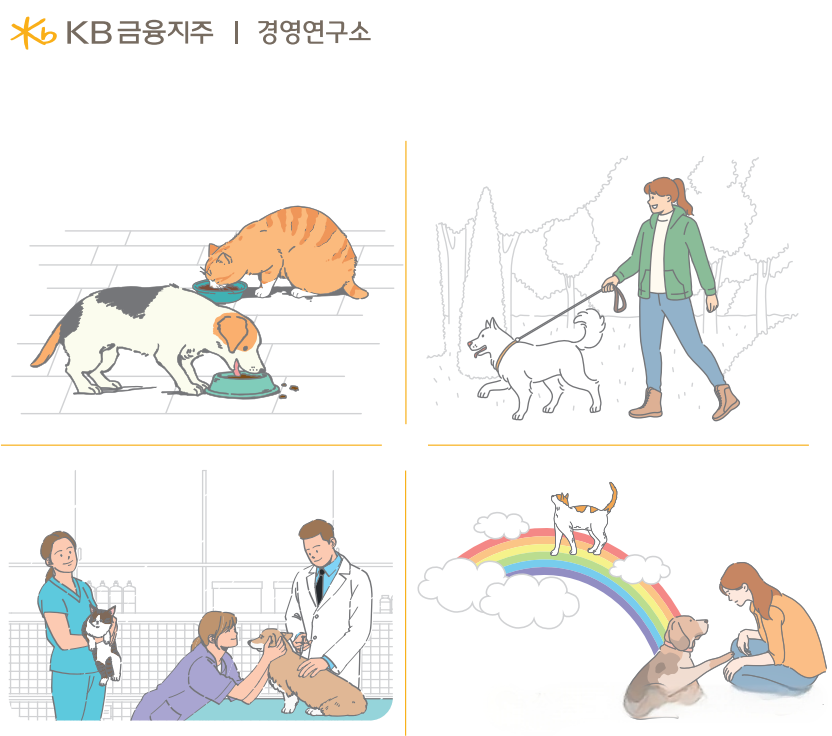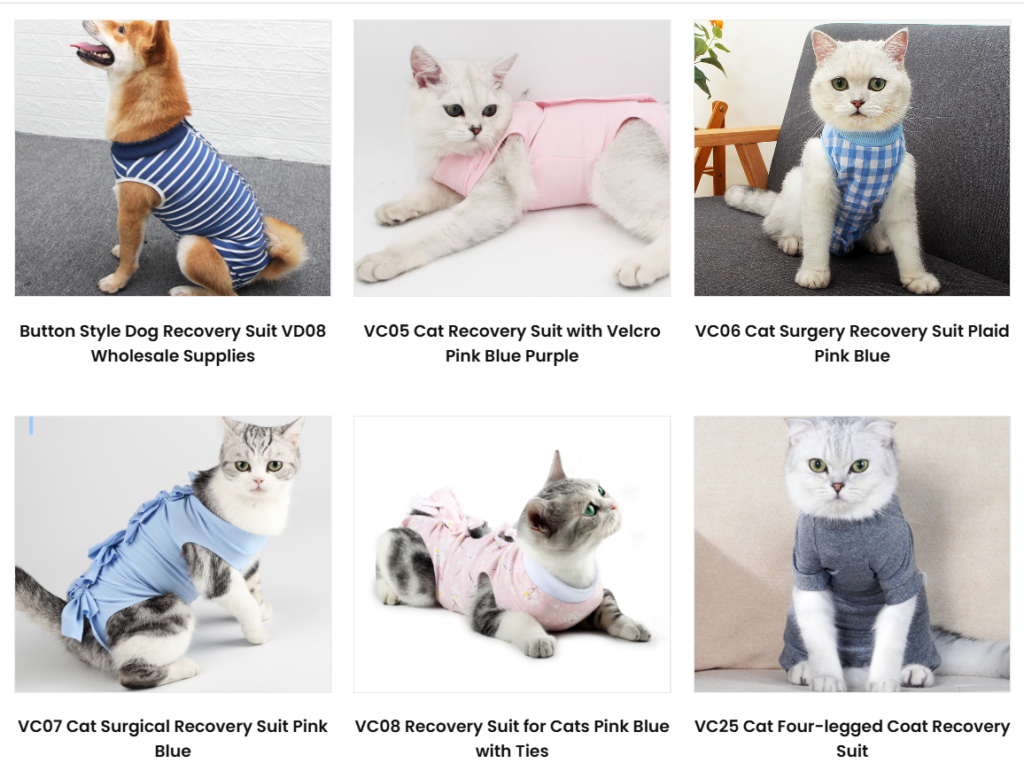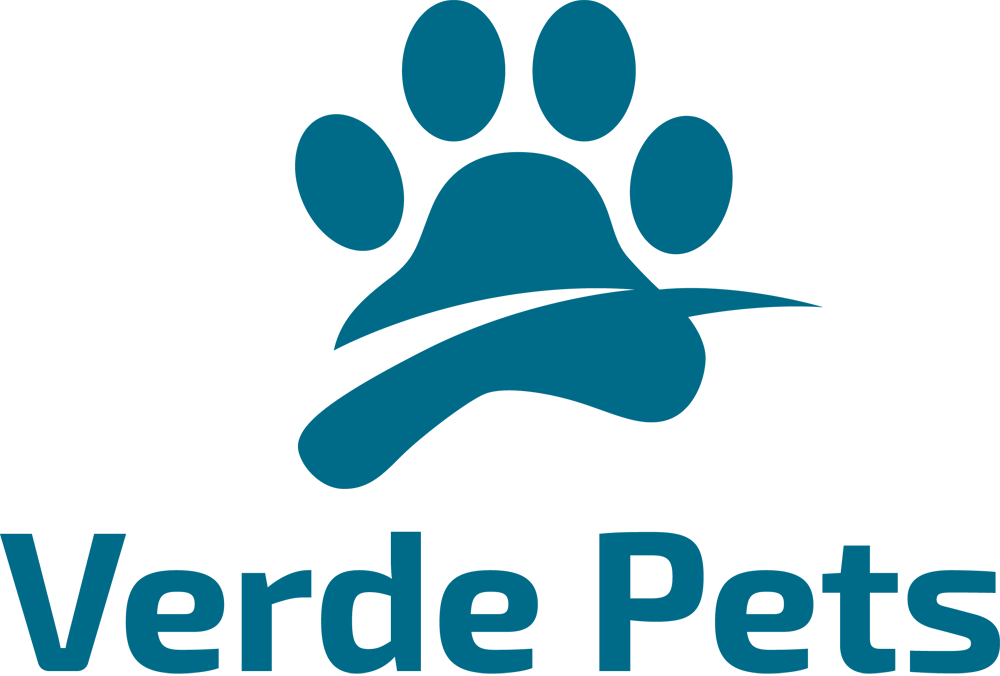
Rising pet humanization is driving higher medical costs, insurance innovation and tech investments, with new players like Pawchi, Pawzmedi and Beyondee fueling industry momentum.
According to a report by Korean financial services firm KB Financial Group, #petownership in South Korea is steadily increasing, with over 15 million citizens (roughly 30% of the population) owning pets as of December 2024.
During the same period, approximately 5.91 million households (27%) nationwide owned pets, representing a 60,000 year-on-year increase.
Nearly 8 in 10 #petowners expressed contentment with raising pets, up 8.7 percentage points from the same period last year. Those intending to continue raising pets rose to 74%, up 11.4 percentage points, while those willing to recommend pet ownership to others increased by 7.5 percentage points to 49.4%.
Pet spending
In 2024, South Koreans spent an average of ₩194,000 ($142/€131) per month on pets, rising 6.8% from ₩154,000 ($113/€104) registered 2 years earlier.
As pet humanization rises in the country, medical expenses for pets nearly doubled over the same period, climbing from ₩577,000 ($424/€389) to ₩1.02 million ($750/€689).
However, despite the increase in pet expenditure, only 26.6% of pet-owning households dedicate separate funds for these expenses.
In terms of #petcare, over half (50.6%) of South Korean #petowners also struggle financially, and only 12.8% have pet insurance despite 9 in 10 being aware of such a service. In addition, 37.4% think pet insurance is unnecessary, while 35.8% cite insufficient coverage.

Pet care industry
According to Grand View Research, the South Korean #petservices market is forecast to reach a revenue of $461.3 million (€392.3M) by 2030 at a compound annual growth rate of 11.1% from 2024-2030.
In 2024, Euromonitor International predicted an average annual spending of $360 (€331) on pet care by South Korean owners, surpassing projected spending in North America and Western Europe.
Notable pet care players in the country include JM Smucker, Mars, Nestle, Blue Buffalo, Inaba Petfood and Yantai China Pet Foods.
Investments and innovation
Beyondee
In September, pet tech start-up Beyondee received a seed investment from Series Ventures, a Korean accelerator. The investment amount was undisclosed.
Beyondee is developing an identity authentication system based on pet registration numbers and has created a mobile pet ID card, the Majoong Pass, which integrates data around the owner. The service is available through the Majoong app, an integrated pet platform.
The start-up also utilizes a proprietary technology called Majoong Boss, which leverages blockchain and AI to manage pet registration information, biometric data, vaccination history and preference details.
Beyondee says that this shareable and centralized pet identification infrastructure can be linked to various industries and used as an identity authentication method to expand pet protection and welfare policies.
“With this investment, we plan to accelerate the advancement of our AI infrastructure and the expansion of our services nationwide, and to build a pet data infrastructure ecosystem that connects small business owners, medical institutions, local governments, financial institutions and the government,” says start-up CEO Jung Sung-wook.
Pawchi
In May, the start-up Pawchi raised approximately ₩6 billion ($4.5M/€4.1M) in its Series A funding round to launch a #petinsurance business.
Investors included Signite Partners, Korea Investment Accelerator, HGI and Thanks Ventures, bringing Pawchi’s total cumulative funding to about ₩6.85 billion ($5.14M/€4.68M).
The start-up says it will use the new funds to enhance its insurance-based solutions and digital services targeting the rising costs of #pethealthcare.
It also expects strategic collaboration with investors from diverse sectors, including distribution, platforms, insurance, finance and education, to expand its presence in the domestic and global insurance markets.
Pawchi was founded by professionals who helped develop South Korea’s first long-term pet insurance product, Petpermint, along with former Toss (Viva Republica) executives specializing in insurance strategy and investments.
“We aim to address the financial burden of pet healthcare through innovative insurance solutions and technology, ultimately driving transformation across the broader #petindustry,” Pawchi CEO Yoon-seok Seo says.
Pawzmedi
In April, Korean health tech start-up Pawzmedi launched a pet body composition testing device called PawzScan, modeled after the InBody machines used in medical institutions and gyms.
The device applies a frequency to a pet’s body and measures its composition based on the resulting resistance. Pawzmedi is targeting veterinary clinics first and plans to release versions for personal use and large dogs later, while expanding into customized feed and health management solutions based on PawzScan data.
The company raised ₩300 million ($220K/€201K) in seed funding from Kangwon National University Technology Holdings and Bluepoint Partners. Earlier this year, it launched a Series A round to raise ₩2 billion ($1.46M/€1.34M).
After strengthening its business base in Korea, Pawzmedi plans to expand into Japan and the United States. It set up a Japanese subsidiary in December and is preparing to establish a U.S. arm.
“As a veterinary clinic operator, I considered what kind of equipment would be essential for pet care but not too expensive, and came up with InBody for animals,” says CEO Oh Jae-woo. “I have a cat myself, and I decided that pet owners would be more satisfied if they received a health management solution based on data from a veterinary clinic.”
Source: GlobalPETS
